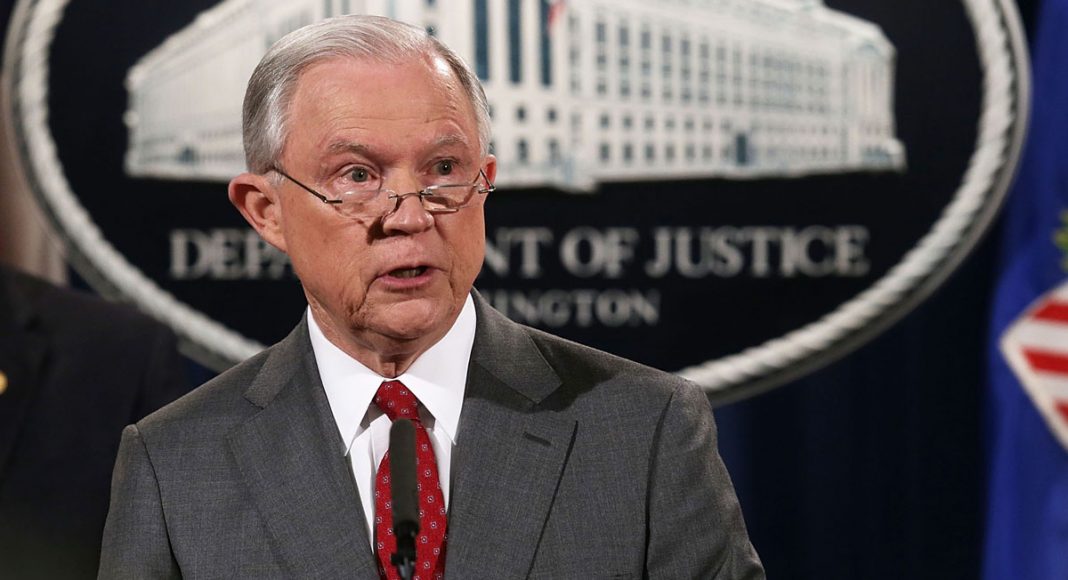You might not believe this, but Attorney General Jeff Sessions has an answer to the opioid crisis. It’s a simple one, actually. So simple you’ll be cursing yourself for not thinking of the idea first.
His solution: More Bufferin and less marijuana.
Sessions was speaking at a Heritage Foundation event celebrating Ronald Reagan’s birthday when he announced his idea. Eager to connect Donald Trump with Reagan’s legacy, Sessions said the Trump administration was also cracking down on drug use and enforcing the War on Drugs. He also expanded on the Trump administration’s plans to address the country’s opioid crisis. Sessions cited that 2017 saw a seven percent decline in opioid prescriptions, and that “my goal in 2018 is to see a further decline.”
-
Related Story: Why Democrats Are Squeamish About Federal Marijuana Reform
“We think doctors are just prescribing too many,” he added.
WATCH: Attorney General Jeff Sessions says his goal for 2018 is to see a further decline in prescriptions of opioids, and says, "we think a lot of this is starting with marijuana and other drugs." pic.twitter.com/paWSsEuNrl
— NBC News (@NBCNews) February 7, 2018
This comes on the heels of a congressional committee accusing regional pharmaceutical companies of “pill dumping” small towns in West Virginia. In one town with a population of only 2,900, two pharmacies just four blocks apart from another received a bewildering 20.8 million prescription painkillers.
“Sometimes you just need to take two Bufferin or something and go to bed,” Session said. Bufferin is an old-school, over-the-counter aspirin.
Opioids have “become so addictive,” Sessions said. “The DEA said that a huge percentage of the heroin addictions starts with prescriptions. That may be an exaggerated number—they had it as high as 80 percent—we think a lot of this is starting with marijuana and other drugs.”
-
Related Story: Here’s Proof Marijuana Can Help Battle Opioid Addiction
Of course most research stands in stark contrast to Sessions’ latest comments regarding marijuana. In the face of the opioid crisis, cannabis has emerged as a solution, not a problem. The National Institute on Drug Abuse (NIDA) noted last year marijuana has lowered rates of prescription opioids in legalized states. The Journal of the American Medical Association suggested late last year that cannabis can be a helpful tool to combat our opioid addiction problem. In addition, just last month a HelloMD study showed that 81 percent of patients prefer marijuana over opiates while 97 percent said cannabis helps decrease opiate use.
Again, Sessions appears willfully uneducated on health issues of national importance. Maybe one day he’ll learn, but until then, it’s simply up to the rest of us.


